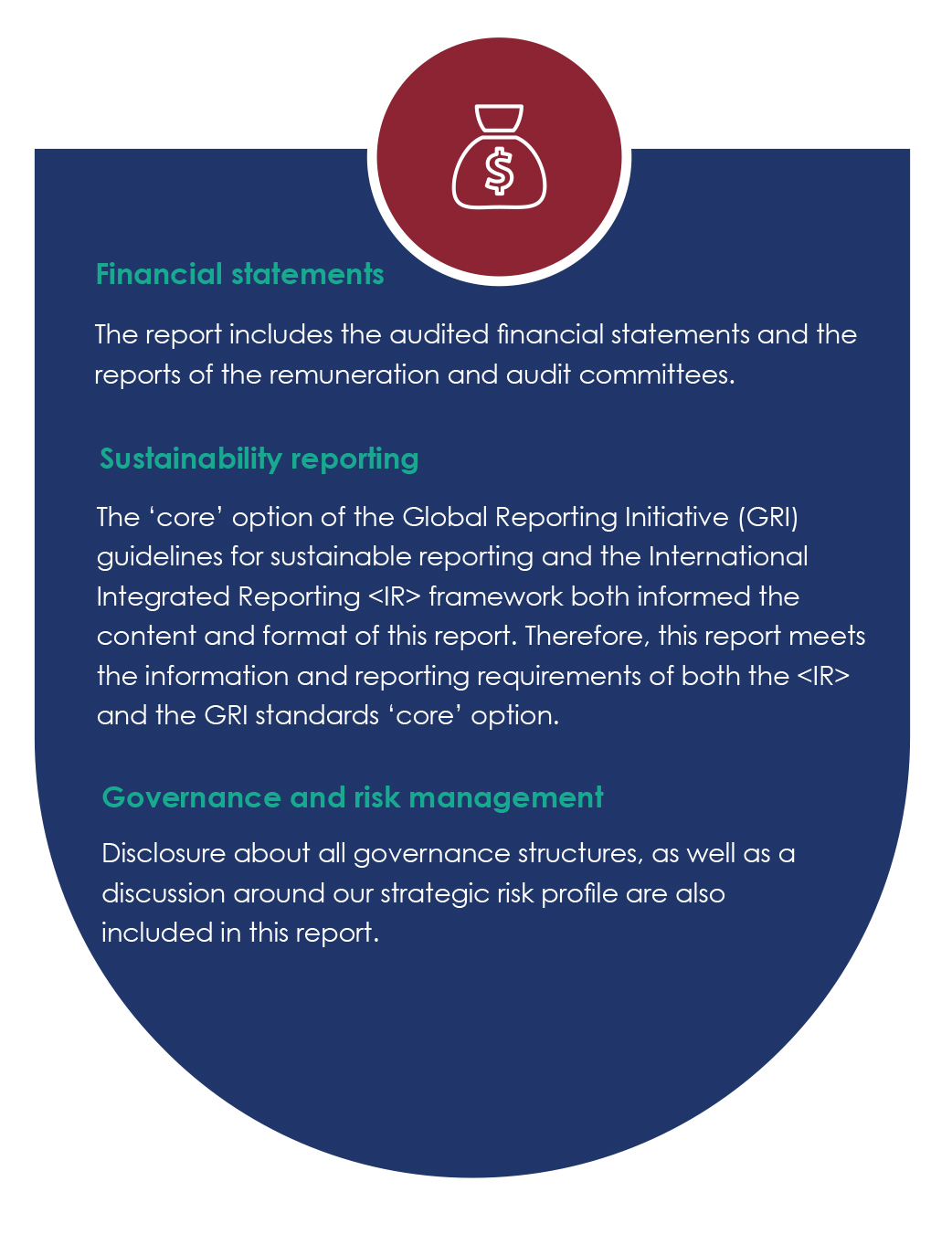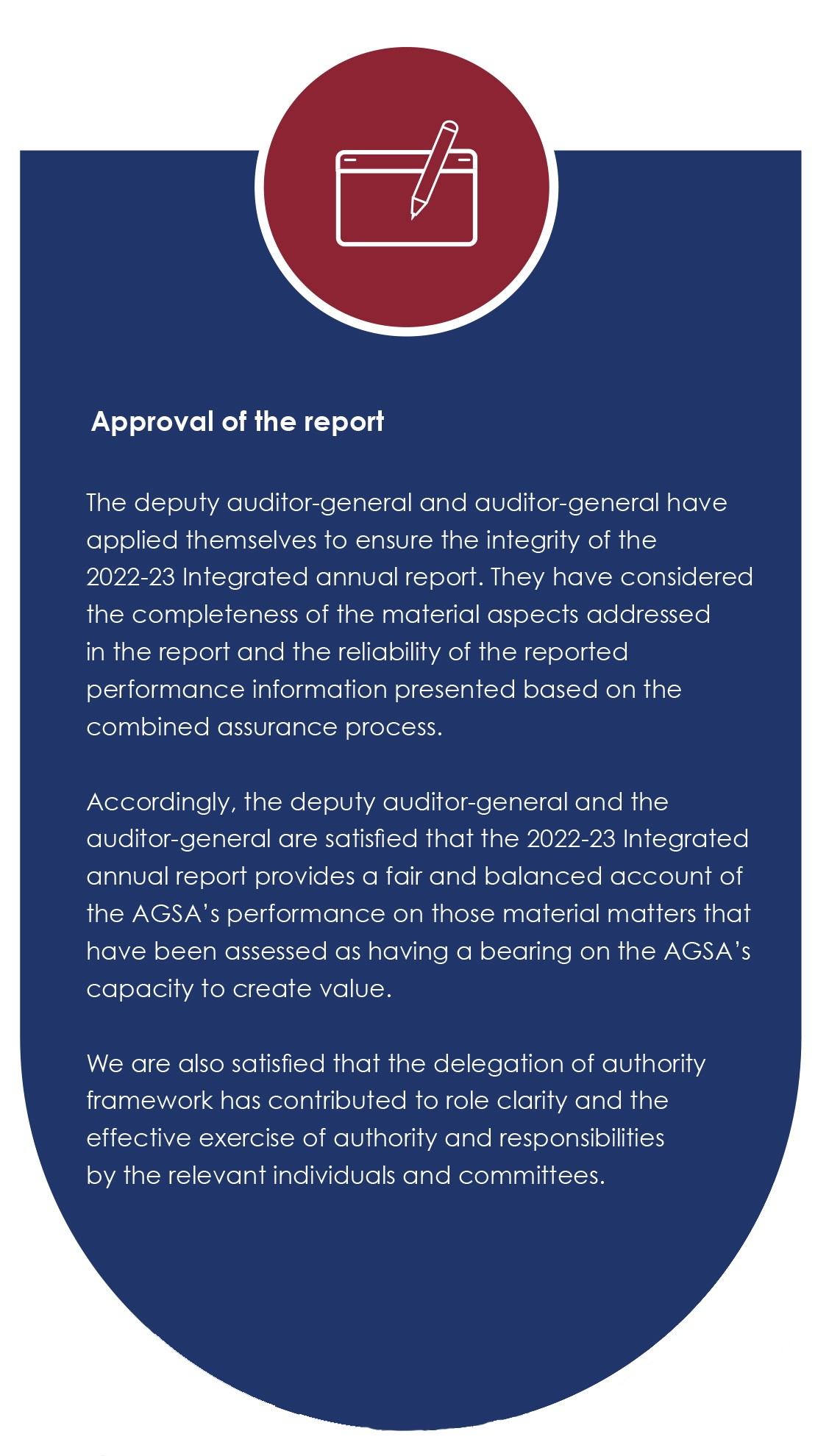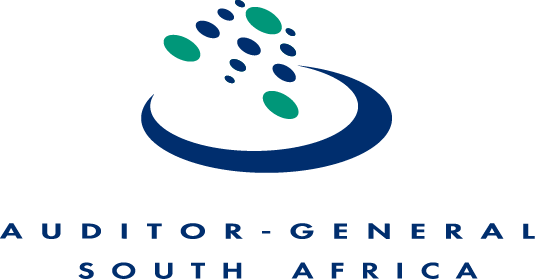





Our integrated annual report represents our account to Parliament and the people of South Africa on the fulfilment of our constitutional mandate and our promise to strengthen our country’s democracy by enabling oversight, accountability and governance in the public sector through auditing, thereby building public confidence.
The report is the result of a systematic reporting process that involves various levels in the organisation, making it a truly collective effort. Our executive committee leads the reporting process; its members are also active contributors to the content of the report, demonstrating the importance of accountability and transparency practised in the national audit office.
Reporting period
This integrated annual report provides a concise and balanced account of our performance from 1 April 2022 to 31 March 2023 against the commitments outlined in the 2022-25 Strategic plan and budget.
Where relevant for the formulation of a complete view of reported matter, some material events after the date of the financial year and up to the approval of this report by the auditor-general on 27 September 2023 have also been reflected in the report.
Integrated approach to materiality, reporting principles and practice
Our integrated approach to reporting is a result of applying integrated thinking to defining the imperatives for creating long-term, sustainable value for our stakeholders. This report covers the performance of all AGSA business units, including our head office and our offices across the nine provinces.
The report reflects the requirements of our governing legislation, the Public Audit Act 25 of 2004 (PAA), and the principles of the King IV code on corporate governance and reporting. The financial statements are prepared according to the International Financial Reporting Standards (IFRS) and the PAA.
Our material focus and the process to determine the content of this report
We identify issues that have the potential to impact our sustainability, i.e. our ability to create, preserve or erode value for our stakeholders. We prioritise those with the greatest relevance in our operating context as material matters. These matters generally relate to our financial and performance management, as well as the risks and opportunities that inform the scenarios we may face in the future.
We assess the matter continually to ensure that we remain relevant, to inform our strategy, the movement of our six capitals and our performance targets.
The material topics reported in this report were defined by our executive committee in the strategic commitments made to Parliament, which are based on our long-term strategy and outlined in detail in the AGSA’s 2022-25 Strategic plan and budget. The material aspects are applicable to all AGSA business units and all our key stakeholders. We therefore continuously engage with our stakeholders to find out what is important to them so that we can respond to their needs.
We did not need any restatements from our previous integrated annual reports.


Forward-looking statements
The report contains certain forward-looking statements on our financial condition, performance results and operations. They are based on our current beliefs and expectations of future events. These forecasts involve risk and uncertainty as they relate to events and depend on circumstances that are expected to occur in the future, many of which could be beyond our control. There are various factors that could cause actual results or developments to differ materially from those expressed or implied by these forward-looking statements.
Significant changes during the reporting period
The 2022-23 financial year was used to prepare our environment for the implementation of our #cultureshift2030 strategy, which will guide our activities over the next six years in pursuit of high impact outcomes. To drive and deepen public sector accountability, our messages were centred on the roles and responsibilities of various players in the accountability ecosystem with the aim of changing the public sector culture.
The revised standard on risk assessment (ISA 315) required a major change in methodology and application. The changes were implemented in the working papers for 2022-23 and the development of the training material was completed.
External assurance of information
We adhere to the principles of good governance. Our combined assurance model defines the various roleplayers that provide assurance to the AGSA, which include management, internal specialists, actuaries, the independent QMAC, internal audit, external audit and the audit committee.
An independent external auditor audits our financial statements, financial management and performance information, and provides limited assurance on the selected sustainability performance indicators.
The assurance on this report was conducted according to the International Standard on Assurance Engagements (ISAE) 3000 (Revised), issued by the International Auditing and Assurance Standards Board (IAASB). The external auditor’s report is in the financial statements.
Relationship between the organisation and the assurance providers
The external auditor is completely independent of the organisation. The firm does not receive any allocation of audits to be done on behalf of the AGSA.
Scoag, which oversees the AGSA’s work on behalf of Parliament, appoints the external auditor for five years (renewable once) and confirms its appointment every year.
The audit committee facilitates contracting the external auditor on behalf of Scoag in a process that is fair, equitable, transparent, efficient and effective and in line with our transformation agenda.
The audit committee also examines the auditor’s capacity and competence to provide assurance on the sustainability information it reports on as part of its annual report to Scoag.
Feedback on our report
We welcome feedback on our integrated reporting to ensure that we continue to disclose information that is pertinent to all our stakeholders. Should you wish to provide written feedback, kindly use our email address agsa@agsa.co.za or our X (previously known as twitter) account @AuditorGen_SA.


This report reflects the requirements of our governing legislation, the PAA, and has been prepared according to the GRI standards’ ‘core’ option and the <IR> framework.
It also reflects the principles of the King IV code on corporate governance and reporting. The report, which includes the audited financial statements for the year ended 31 March 2023, has been approved by the deputy auditor-general and the auditor-general.

